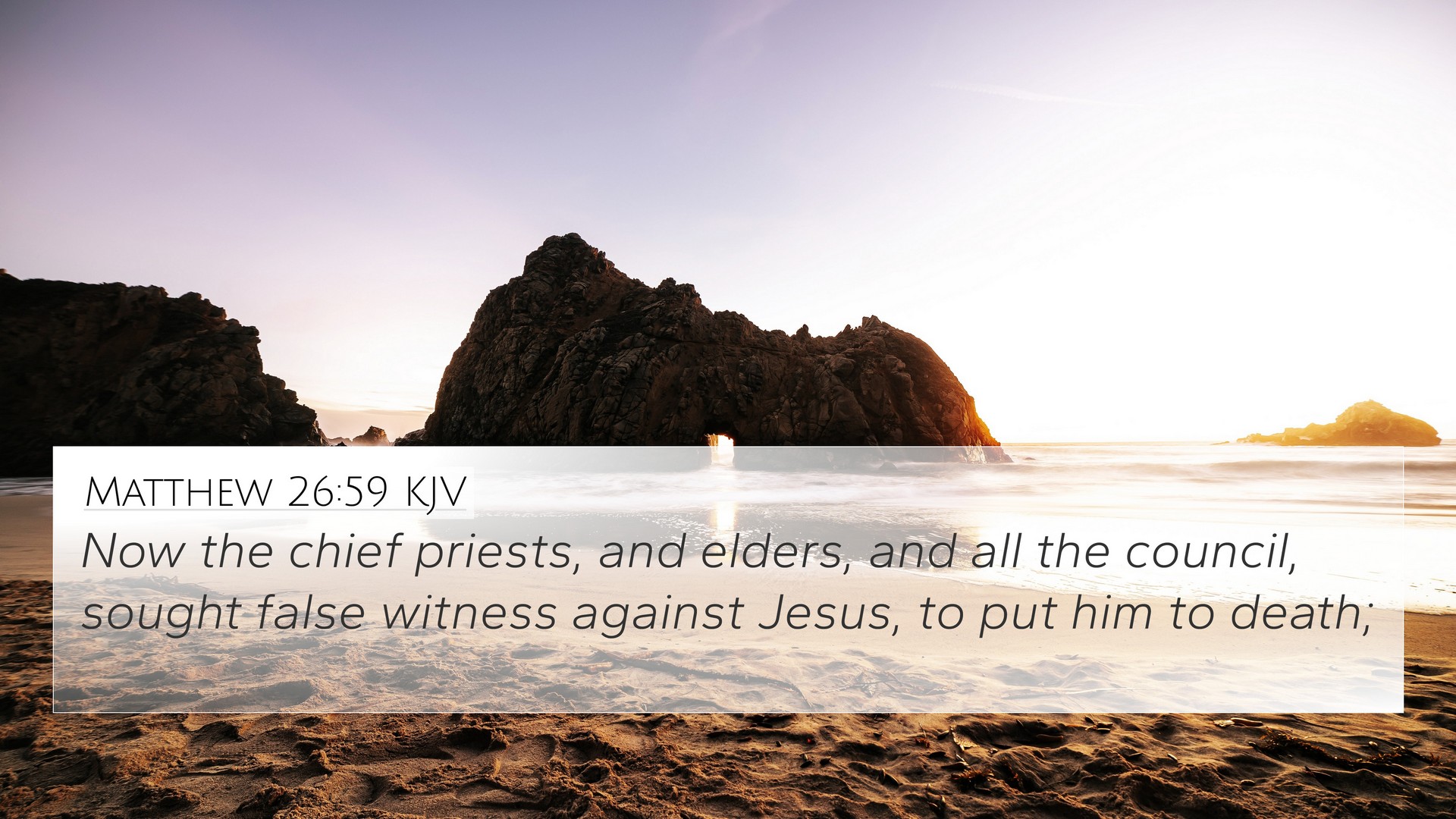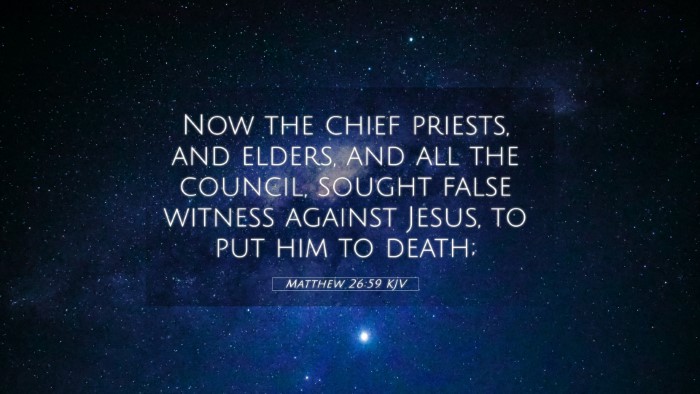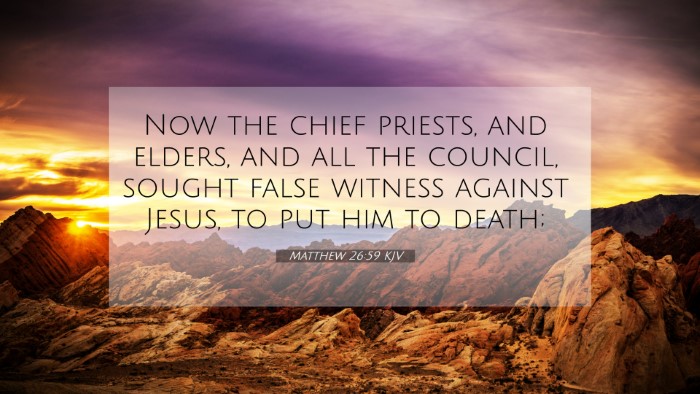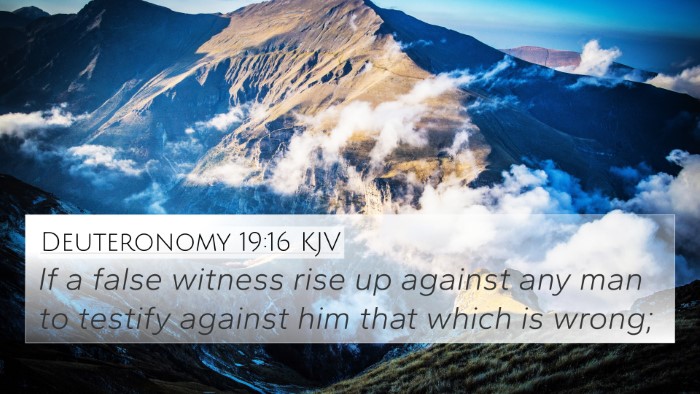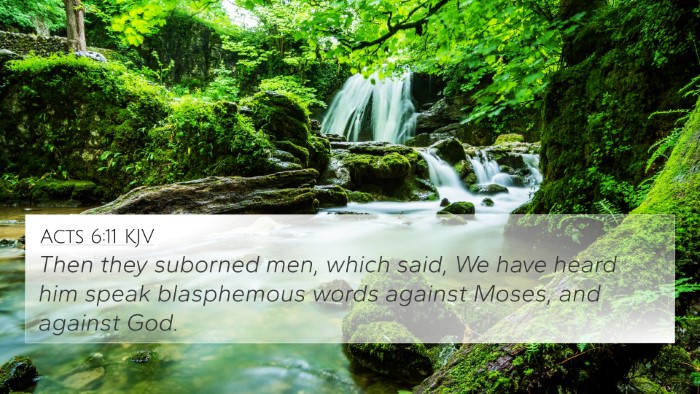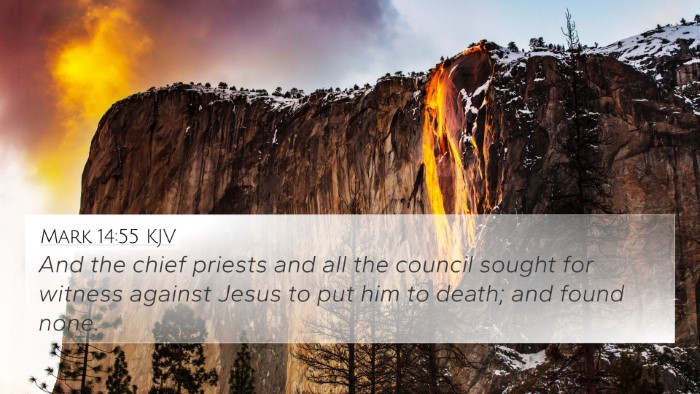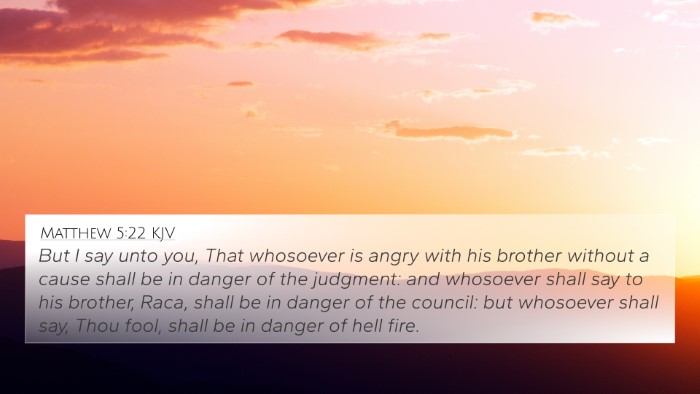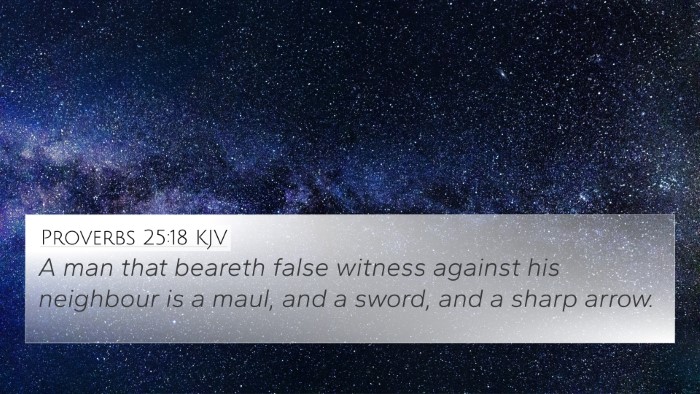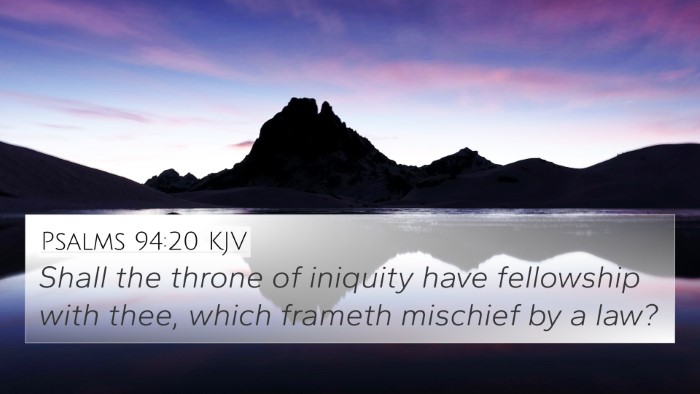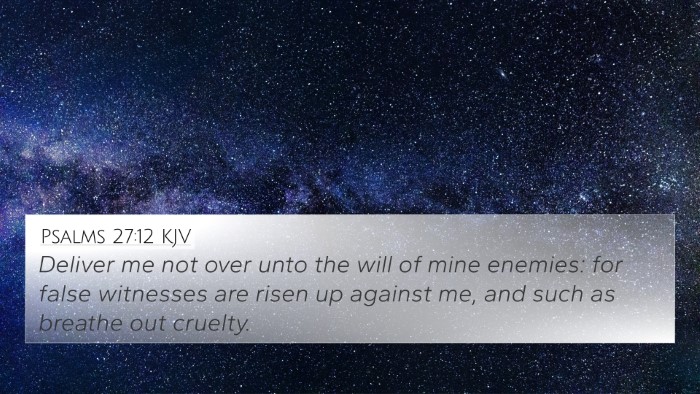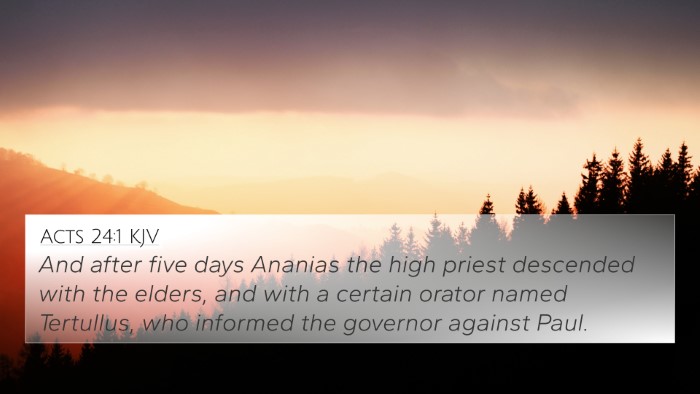Understanding Matthew 26:59
Matthew 26:59 states, "Now the chief priests, and all the council, sought false witness against Jesus, to put him to death." This verse occurs in the context of Jesus' trial and highlights the deception and malice underlying the religious leaders' intentions. The passage marks a pivotal moment as it sets the stage for Jesus' crucifixion—a central event in Christian theology. Insights from various public domain commentaries can deepen the understanding of this verse.
Contextual Insights
Matthew Henry emphasizes the betrayal and the unlawful nature of the proceedings against Jesus. The religious leaders, rather than seeking truth, aimed to secure a conviction at any cost, revealing their corrupt character. This highlights the theme of false witnesses and unjust trials, paralleling the prophetic scriptures that foretold such treachery.
Albert Barnes adds that the Jewish council, known as the Sanhedrin, was endeavoring to fulfill their intent to eradicate Jesus, whom they viewed as a threat to their authority and the religious order. He notes that the word "council" reflects a gathering steeped in a desire for power rather than justice, aligning with the overarching theme of human rebellion against divine authority.
Adam Clarke further discusses the implications of seeking "false witnesses." He points out that this act signifies a complete moral breakdown among the leaders who were supposed to uphold the law. David's words in Psalm 27:12 resonate here, as he too faced similar unjust accusations. Clarke also acknowledges the fulfillment of prophetic foreshadowing from Isaiah and other prophets regarding the Messiah's suffering.
Thematic Connections
The verse illuminates several thematic connections with other scriptural texts. Below are some notable cross-references that can enhance our understanding:
- Exodus 20:16 - This verse emphasizes the commandment against bearing false witness.
- Psalms 35:11 - David speaks of false witnesses rising up against him, mirroring the situation Jesus faced.
- Isaiah 53:7 - A prophetic insight into Jesus' silent suffering and injustice.
- Matthew 5:11-12 - Jesus teaches about the blessing that comes with persecution for righteousness.
- John 15:20 - Jesus foretells His followers will be treated as He was, linking the experiences of believers with His own.
- Acts 6:13-14 - The false accusations against Stephen parallel those against Jesus, showcasing the continuity of persecution.
- 1 Peter 2:22 - Peter acknowledges Christ’s perfect response to injustice, an invitation for believers to emulate His behavior.
- Proverbs 19:5 - The Biblical principle that a false witness will not go unpunished mirrors the eventual divine justice seen later in the New Testament.
- Matthew 26:61 - The false testimony against Jesus, which included his predicted destruction of the temple, is crucial to the trial narrative.
- Luke 22:71 - The mention of blasphemy from the council highlights the severe implications of the accusations made against Jesus.
Reflections on Cross-Referencing
Exploring Bible verses that relate to each other enhances comprehension of key theological themes. Cross-referencing Biblical texts can reveal deeper meanings and connections that the original audience would have understood. For instance, the connection between the suffering of Jesus and the prophecies about the Messiah enriches our understanding that the trials He faced were part of a divine plan.
Resources like a Bible concordance or a Bible cross-reference guide serve as essential tools for anyone engaging in cross-reference Bible study. They facilitate the discovery of links between the Prophets and Apostolic teachings, showing how the Old and New Testaments converse with one another, thereby illuminating the message of redemption central to scriptural texts.
Application of Insights
The narrative surrounding Matthew 26:59 prompts believers today to reflect on how to use Bible cross-references effectively. Studying these connections not only prepares one for better understanding and sermon preparation but also enriches personal faith journeys. The underlying ethics and justice themes ask us to examine our own lives and motivations.
